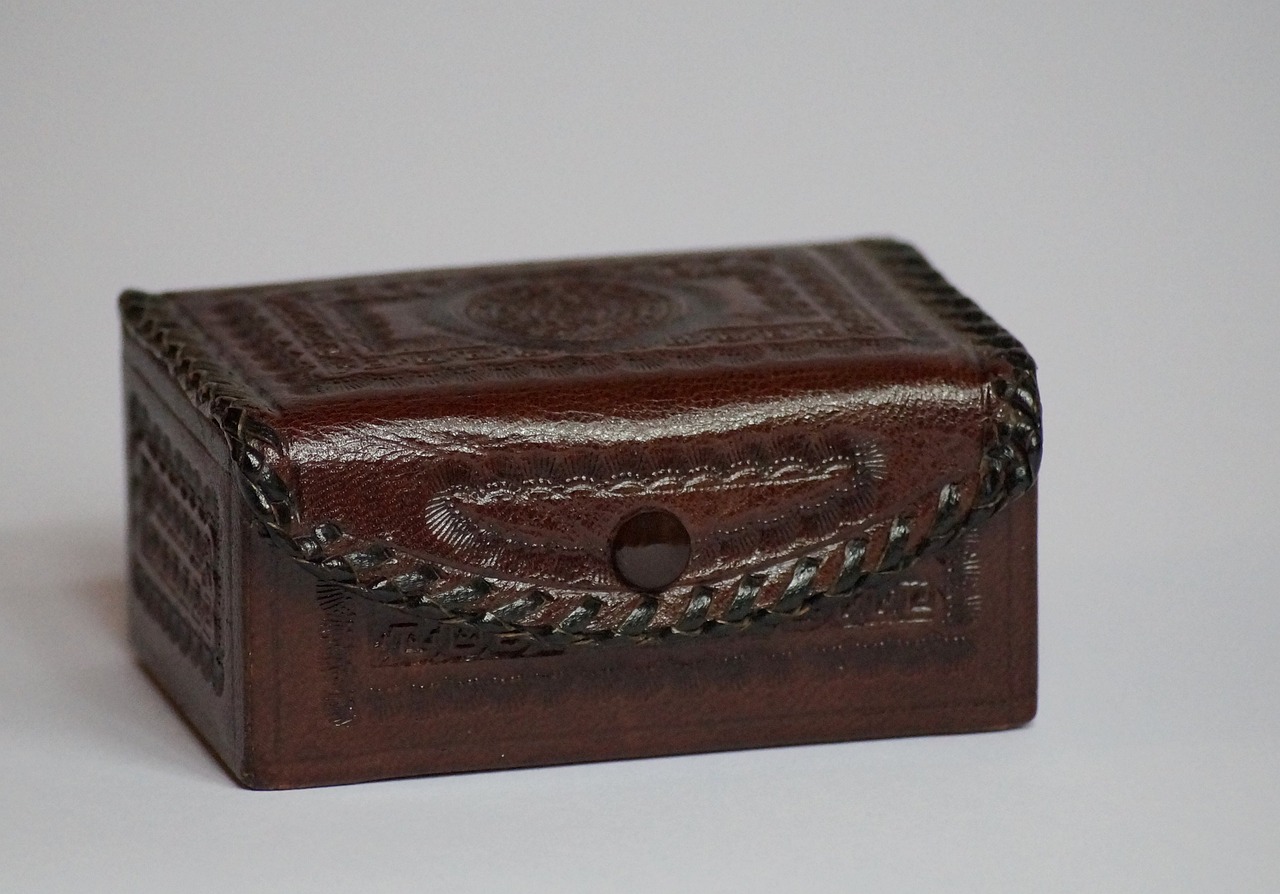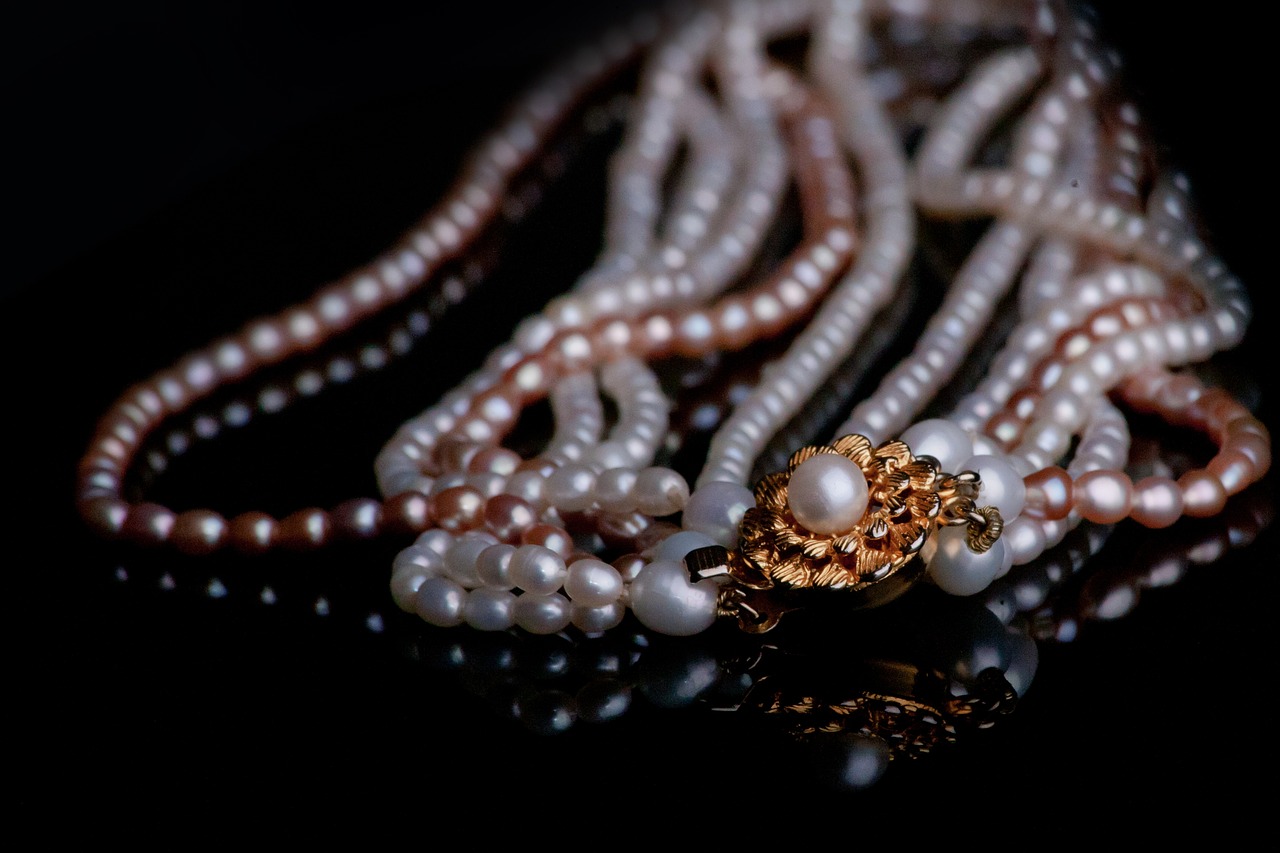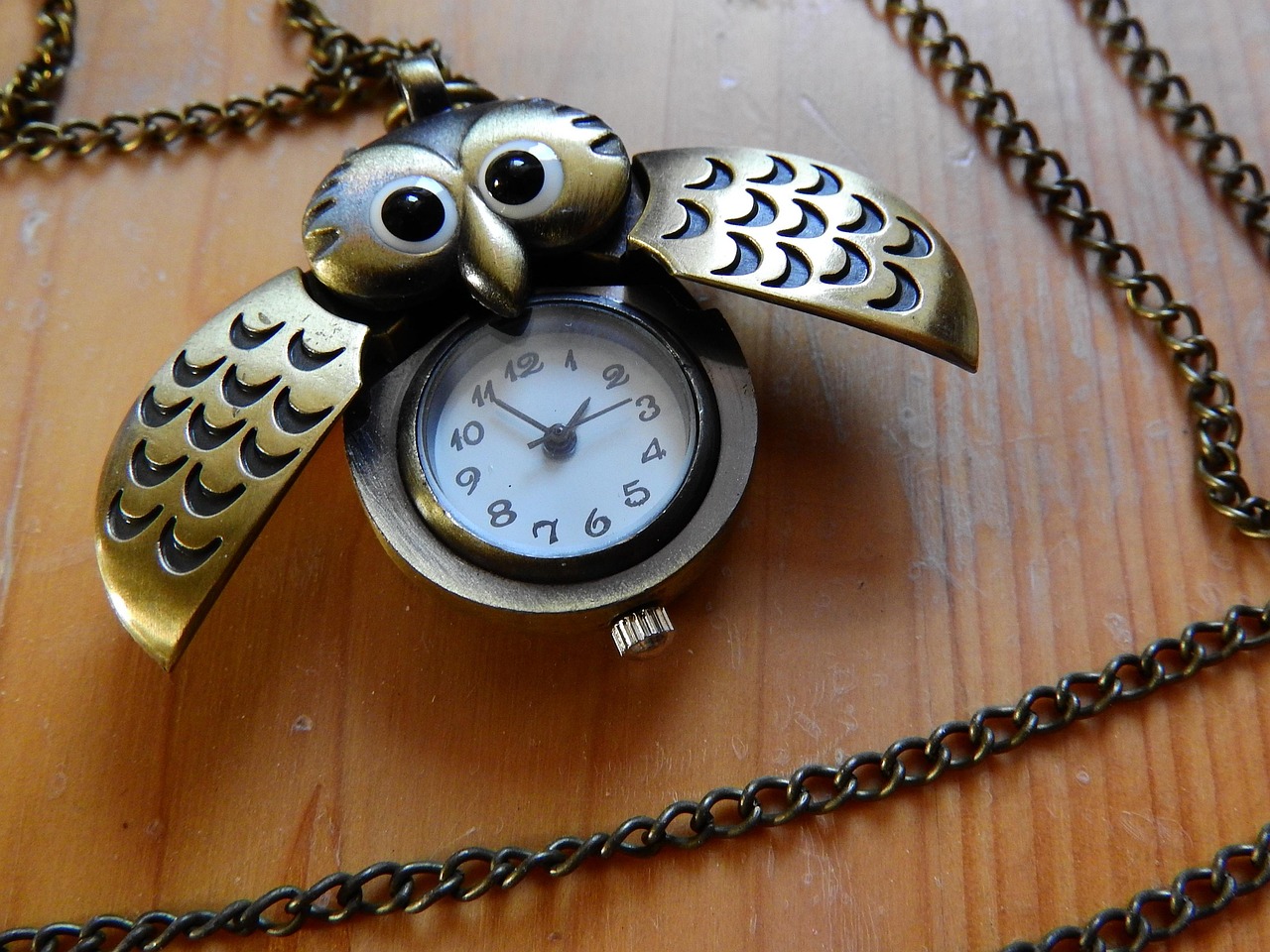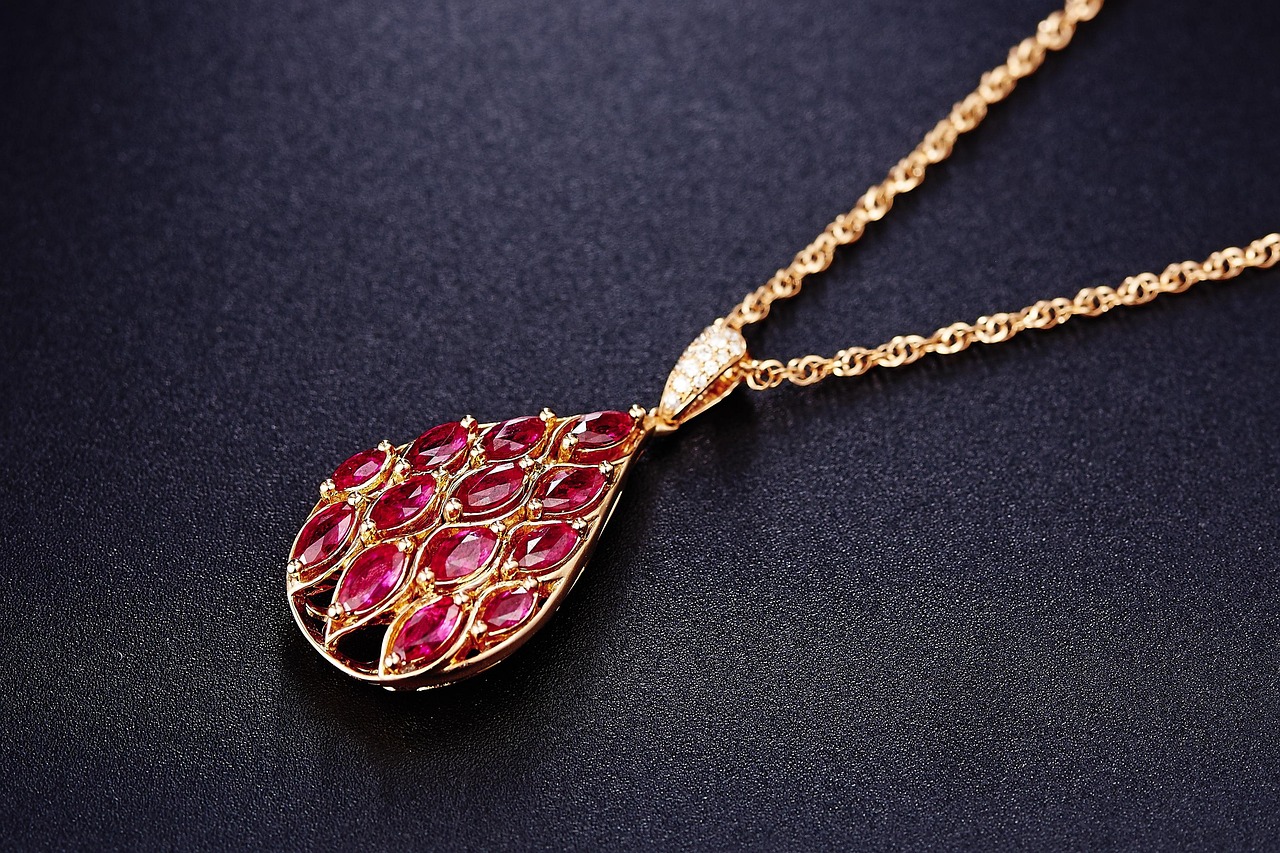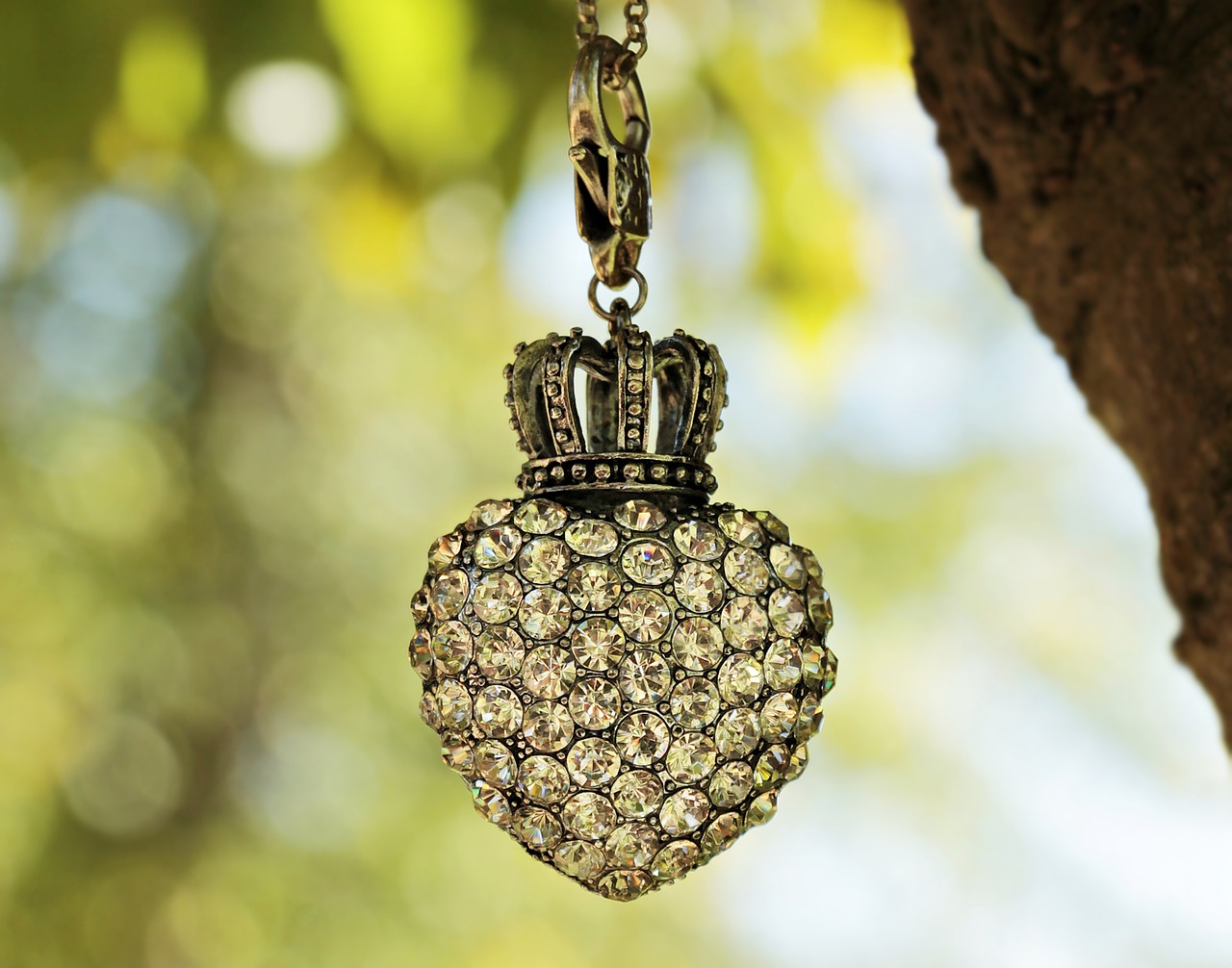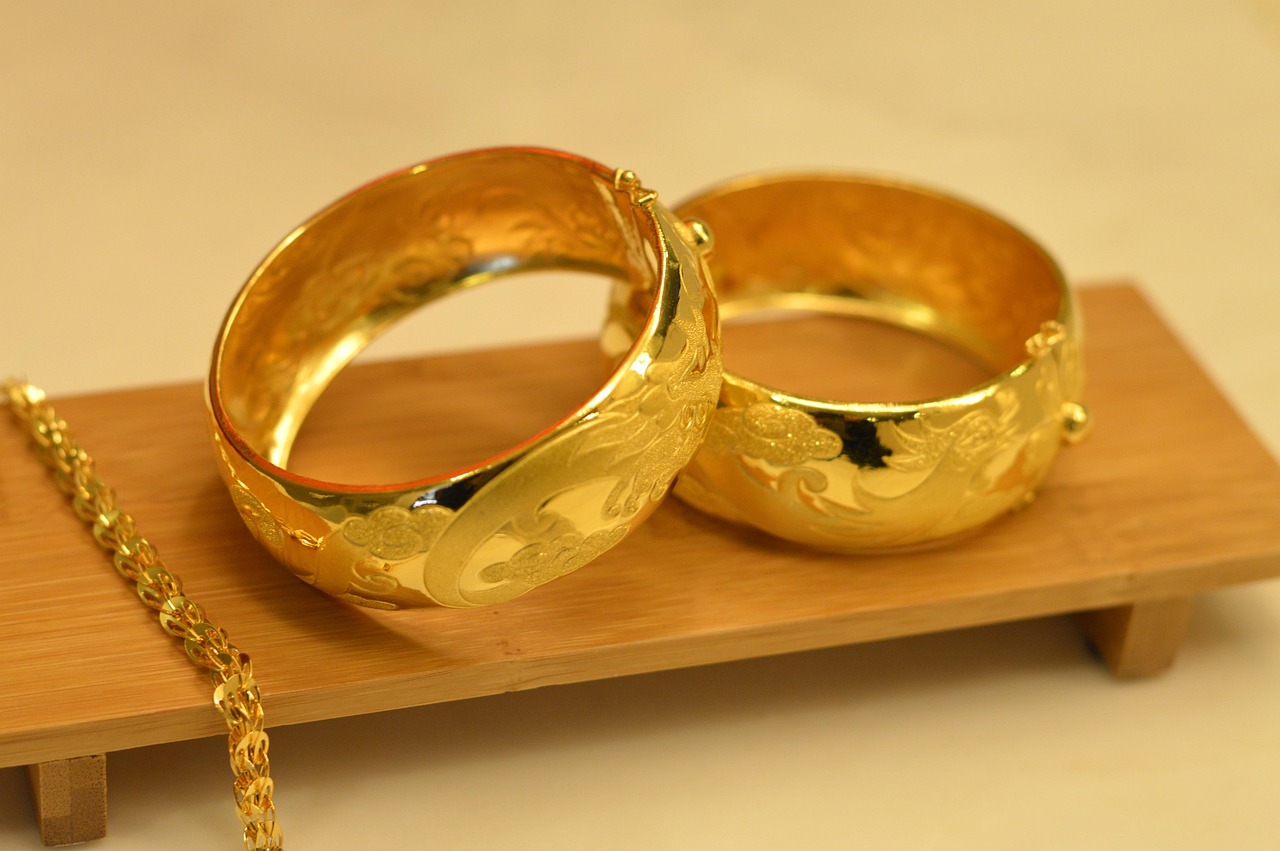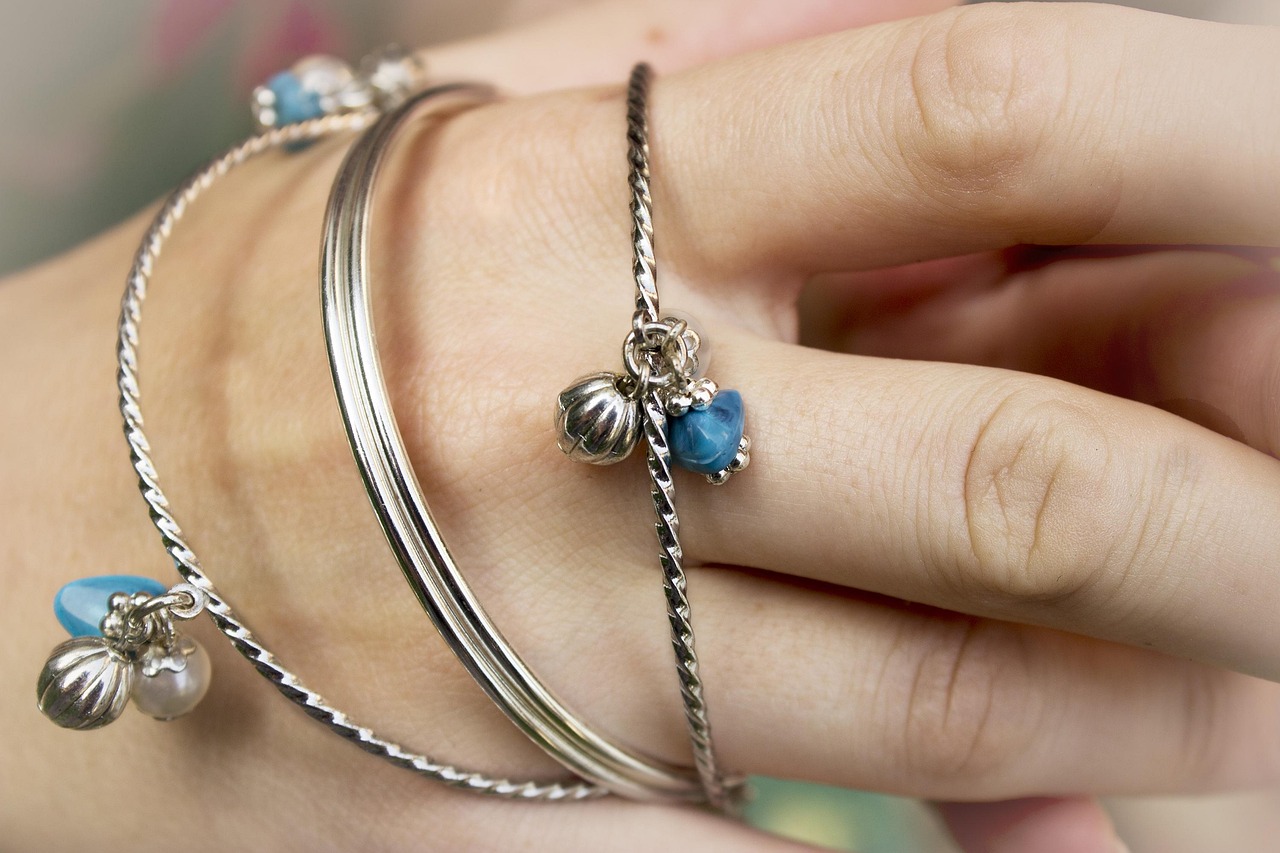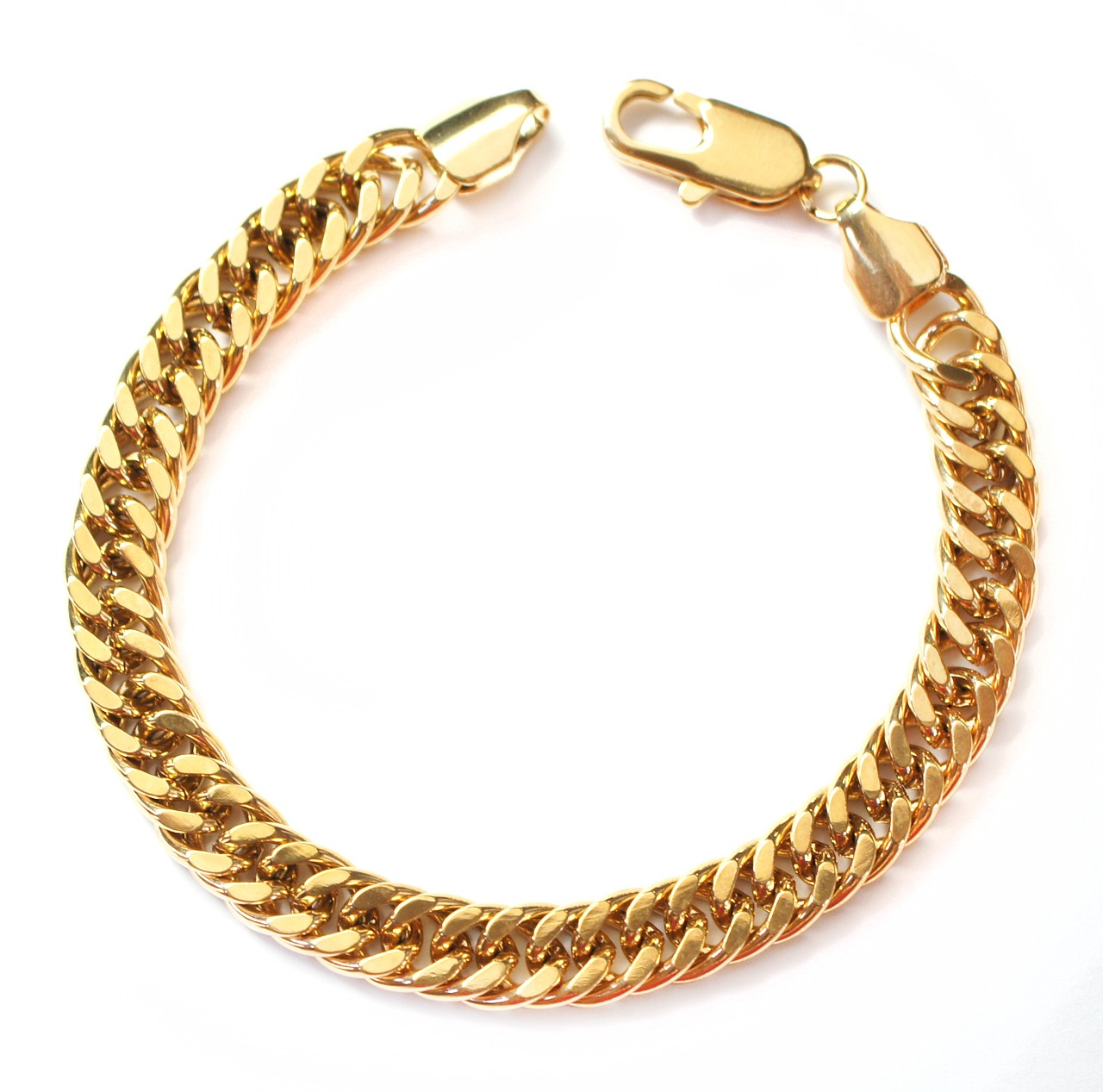This article explores the top locations across the United States where you can trade or exchange old jewelry, providing insights into the best practices and considerations for a successful transaction.
Trading or exchanging old jewelry can be a financially savvy choice, allowing you to refresh your collection while obtaining value from pieces you no longer wear. Many individuals find that their old jewelry no longer fits their style or lifestyle, making it an ideal candidate for trade or exchange.
Local jewelry stores often provide personalized services and expert appraisals, making them a reliable option for trading or exchanging your old jewelry. These establishments typically have established reputations within the community.
- Personalized Service: Local jewelers often take the time to understand your needs and preferences.
- Expert Appraisals: They can provide accurate valuations based on their extensive knowledge.
- Community Trust: Established local jewelers are usually well-regarded, ensuring a smoother transaction.
When selecting a reputable local jeweler, consider the following:
- Research their credentials and experience.
- Read customer reviews to gauge satisfaction.
- Visit their store to assess professionalism and expertise.
Online jewelry marketplaces have surged in popularity, offering convenience and a broader audience for trading or exchanging old jewelry. These platforms allow users to connect with potential buyers and sellers from the comfort of their homes.
Several online platforms specialize in jewelry trading, including:
- eBay: A well-known platform with a vast audience.
- Craigslist: Localized listings for quicker exchanges.
- Poshmark: A fashion-focused platform that includes jewelry.
When selling jewelry online, ensure you:
- Use secure payment methods to protect your finances.
- Verify the platform’s authenticity to avoid scams.
- Provide accurate descriptions and high-quality images of your items.
Pawn shops can be a quick solution for those looking to exchange old jewelry for immediate cash. However, understanding their pricing models is crucial for a satisfactory transaction.
Pawn shops typically offer lower prices than retail value, as they need to resell items for profit. Be prepared for a negotiation process, as valuations can vary significantly.
Using a pawn shop is ideal for urgent cash needs, but it’s essential to weigh the potential loss of value against your immediate financial requirements.
Attending jewelry trade shows can provide unique opportunities to connect with buyers and sellers, allowing you to trade or exchange old jewelry in an engaging environment.
Researching local trade shows can lead to valuable networking opportunities and insights into current market trends, enhancing your trading experience.
To maximize your experience at a trade show:
- Prepare your jewelry for display to attract potential buyers.
- Gather necessary documentation to authenticate your items.
- Be ready to negotiate with potential buyers to achieve the best deal.
Donating old jewelry to charities can offer personal satisfaction and potential tax benefits, providing a unique alternative to traditional trading methods.
Selecting a charity that aligns with your values ensures that your donation makes a meaningful impact while also allowing you to declutter your collection.
Understanding the tax implications of donating jewelry can help you maximize your benefits, making it a financially savvy choice in addition to being altruistic.
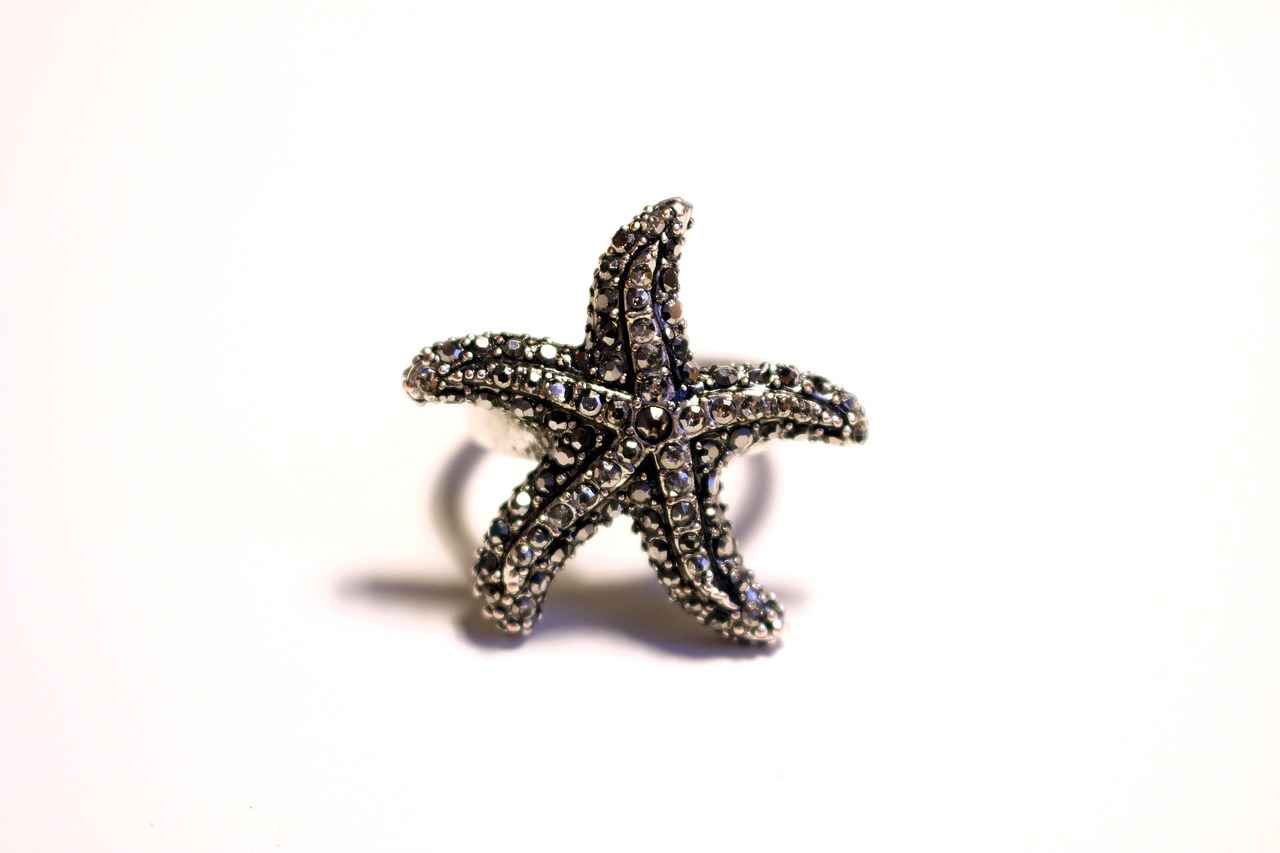
Why Trade or Exchange Old Jewelry?
Trading or exchanging old jewelry can be a financially savvy choice, allowing you to refresh your collection while obtaining value from pieces you no longer wear. Many individuals find themselves with jewelry that no longer fits their style or has sentimental value that has faded over time. Instead of letting these items gather dust, consider the benefits of trading or exchanging them.
One of the primary reasons to trade or exchange old jewelry is the opportunity to receive cash or store credit that can be reinvested into new pieces that better suit your current taste. This process not only helps you declutter but also allows you to indulge in new styles without spending excessive amounts of money. Additionally, trading can be a more sustainable option, reducing waste by giving your old jewelry a new life.
What are the benefits of trading jewelry?
- Financial Gain: You can obtain a fair price for jewelry that may be worth more than you think.
- Upgrading Your Collection: Trading allows you to swap out old pieces for new, trendy items.
- Environmental Impact: Recycling jewelry reduces waste and promotes sustainability.
- Personal Satisfaction: Knowing that your old pieces are appreciated by someone else can be fulfilling.
Moreover, trading jewelry can also involve emotional benefits. Many people attach memories to their jewelry, and trading it can symbolize moving on from certain phases in life. By exchanging these items, you can create space for new memories and experiences.
How can you ensure a successful trade?
- Research Value: Understand the market value of your jewelry before seeking to trade it.
- Choose the Right Venue: Whether it’s a local jeweler, an online marketplace, or a trade show, select a venue that aligns with your trading goals.
- Negotiate Wisely: Be prepared to negotiate and articulate the value of your pieces to ensure a fair exchange.
- Document Everything: Keep records of your transactions to avoid any disputes later on.
In conclusion, trading or exchanging old jewelry is not just a practical decision; it can also be a fulfilling and enriching experience. By understanding the value of your pieces and choosing the right avenues for exchange, you can make the most out of your jewelry collection. Whether for financial gain, personal satisfaction, or environmental responsibility, trading old jewelry opens up a world of possibilities.
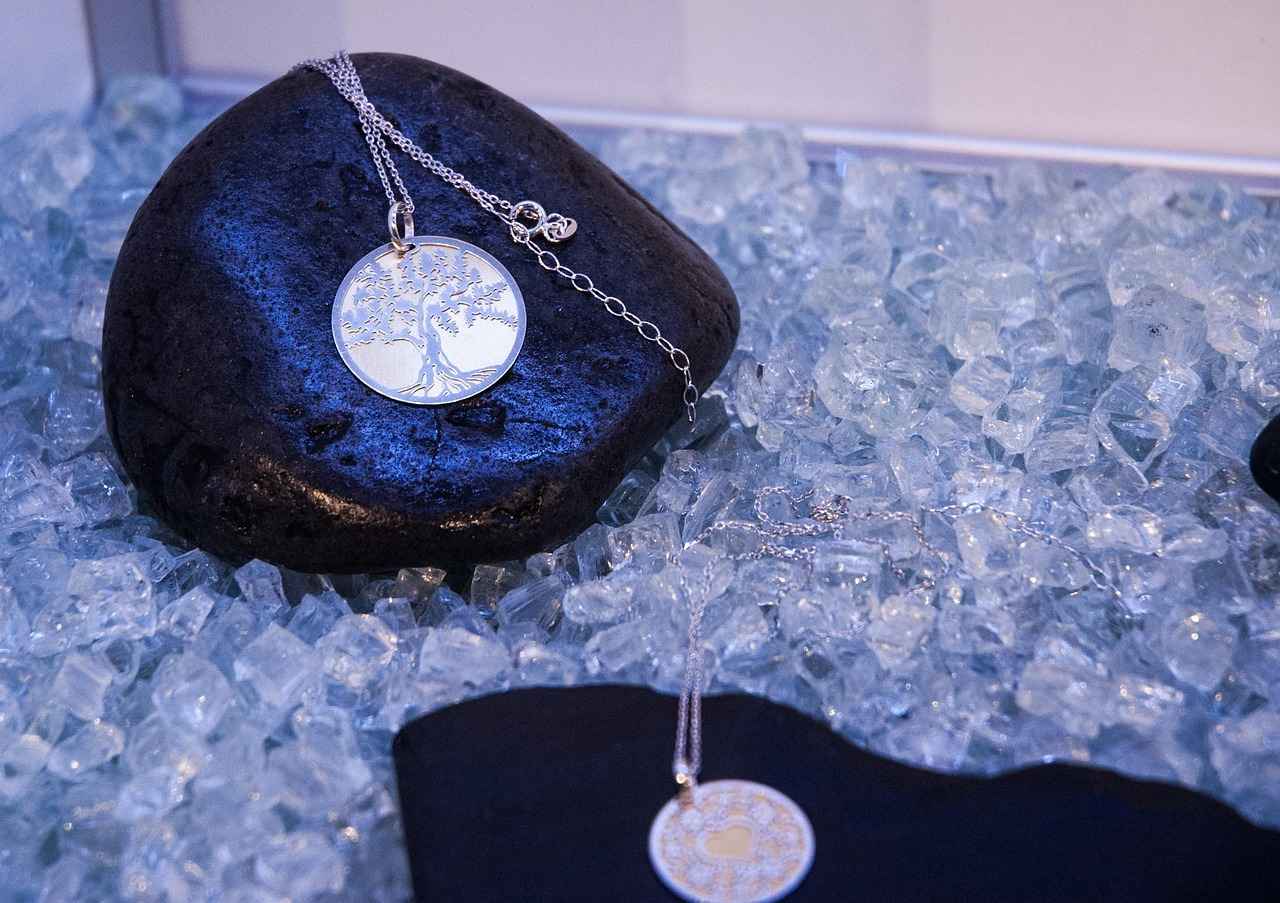
Local Jewelry Stores: A Trusted Option
When it comes to trading or exchanging old jewelry, local jewelry stores stand out as a trusted option. These establishments offer a blend of personalized services and expert appraisals that can significantly enhance your experience. Unlike larger retail chains or online platforms, local jewelers often cultivate relationships with their clients, providing a more tailored experience that can lead to better outcomes.
Local jewelry stores are not just places to buy new pieces; they also serve as valuable resources for those looking to trade or exchange items. Here are some compelling reasons to consider:
- Personalized Service: Local jewelers often take the time to understand your needs and preferences, ensuring a more satisfying transaction.
- Expert Appraisals: Many local jewelers have extensive knowledge and experience in valuing jewelry, which can help you receive a fair price for your items.
- Community Trust: Established local businesses often have a reputation to uphold, making them more likely to offer competitive prices and ethical practices.
When you decide to trade your jewelry at a local store, you can expect a few key steps:
- Initial Consultation: Most jewelers will begin with a discussion about your items, allowing you to express your goals regarding the trade or exchange.
- Appraisal Process: The jeweler will evaluate your jewelry based on several factors, including condition, market demand, and intrinsic value.
- Negotiation: Be prepared for a negotiation process. Understanding the value of your jewelry can empower you during discussions.
Finding the right local jeweler is crucial for a successful exchange. Here are some tips:
- Research: Look for jewelers with positive reviews online and a strong reputation within the community.
- Visit Multiple Stores: Don’t hesitate to visit several jewelers to compare offers and gauge their professionalism.
- Ask Questions: A reputable jeweler should be willing to answer your questions and provide insights into their appraisal process.
Trading jewelry locally can offer several advantages:
- Immediate Transactions: Unlike online platforms, local stores often allow for immediate exchanges, providing you with cash or store credit on the spot.
- Building Relationships: Establishing a rapport with a local jeweler can lead to better deals and future opportunities.
- Supporting Local Businesses: By choosing local, you contribute to your community’s economy, making a positive impact.
While local jewelry stores offer many benefits, there are some challenges to keep in mind:
- Limited Inventory: Local jewelers may not have the same selection as larger chains or online marketplaces.
- Price Variability: Prices can vary significantly between different local stores, so it’s essential to shop around.
In conclusion, local jewelry stores provide a personalized and trustworthy option for trading or exchanging old jewelry. By understanding the benefits and challenges, you can make informed decisions that align with your needs and expectations.
Benefits of Using Local Jewelers
When considering the trade or exchange of old jewelry, one of the most reliable options to explore is your local jeweler. These small businesses often have deep roots in the community and are known for their personalized service and expertise. In this section, we will delve into the benefits of using local jewelers for your jewelry transactions.
Local jewelers typically enjoy a well-earned reputation built over years of serving their community. Their trustworthiness often stems from word-of-mouth referrals and positive customer experiences. This established reputation can provide peace of mind, knowing that you are dealing with a professional who values their community ties and customer relationships.
One of the most appealing aspects of working with local jewelers is their ability to offer competitive prices for your jewelry. Unlike larger chain stores, local jewelers may have lower overhead costs, allowing them to provide better offers for your old pieces. This can result in a more favorable financial outcome for you when trading or exchanging your jewelry.
Local jewelers often pride themselves on providing personalized service. They take the time to understand your needs and the history of your jewelry, which can lead to a more accurate appraisal. Their expertise allows them to assess the true value of your items, ensuring that you receive a fair price. This level of attention and care is often lacking in larger retail environments.
Engaging with local jewelers can foster long-term relationships, which can be beneficial for future transactions. By establishing a rapport, you may receive exclusive offers or insights into upcoming trends and market values. This connection can also lead to better negotiations, as the jeweler may be more inclined to offer you a better deal based on your history as a valued customer.
Choosing to trade or exchange your jewelry at a local jeweler contributes to the local economy. By supporting small businesses, you play a part in keeping your community vibrant and economically healthy. This sense of community support can enhance your overall experience, knowing that your transaction benefits your neighbors and local artisans.
Local jewelers are often conveniently located, making them easily accessible for in-person consultations. This accessibility allows you to visit the store to discuss your items face-to-face, which can lead to a more transparent and trustworthy transaction. Additionally, many jewelers offer flexible hours, accommodating your schedule for a visit.
In summary, local jewelers provide a host of benefits that make them a smart choice for trading or exchanging old jewelry. From their established reputations and competitive pricing to their personalized service and community impact, local jewelers are well-equipped to handle your jewelry transactions with care and expertise. By choosing to work with them, you not only ensure a smoother transaction but also support your local economy.
How to Choose the Right Local Jeweler
Choosing the right local jeweler is a crucial step in ensuring that your jewelry trading or exchanging experience is both rewarding and secure. With so many options available, it can be overwhelming to make a decision. Below are several key factors to consider when selecting a reputable local jeweler.
- Research Credentials: Begin by checking the jeweler’s credentials. Look for affiliations with recognized organizations such as the Gemological Institute of America (GIA) or the American Gem Society (AGS). These affiliations often indicate a commitment to ethical practices and a high level of expertise.
- Read Customer Reviews: Customer reviews can provide valuable insights into the jeweler’s reputation. Websites like Yelp and Google Reviews can help you gauge the experiences of previous clients. Look for patterns in feedback regarding customer service, pricing, and quality of work.
- Visit the Store: A physical visit to the jeweler’s store can reveal a lot about their professionalism. Pay attention to the cleanliness of the store, the organization of the inventory, and the demeanor of the staff. A well-maintained store is often a reflection of the jeweler’s commitment to quality.
- Assess Expertise: When you visit, engage with the staff. Ask questions about their experience and knowledge in the field. A knowledgeable jeweler should be able to provide detailed information about gemstones, settings, and the value of your items.
- Request Appraisals: If you are looking to trade or sell, ask for a formal appraisal. A reputable jeweler will provide a thorough evaluation based on current market trends and the item’s condition. This step is crucial for understanding the true value of your jewelry.
- Compare Offers: Don’t hesitate to visit multiple jewelers to compare offers. This can help you get a sense of the market value of your items and ensure you are getting a fair deal. It also allows you to gauge the level of service provided by different jewelers.
- Trust Your Instincts: Finally, trust your gut feeling. If something feels off or if you are not comfortable with the jeweler’s approach, it’s okay to walk away. Your comfort and confidence in the transaction are paramount.
By following these guidelines, you can make an informed decision when choosing a local jeweler. Remember that a trustworthy jeweler not only provides a fair price but also offers peace of mind and expert guidance throughout the trading or exchanging process.

Online Jewelry Marketplaces: Convenience at Your Fingertips
In the digital age, online jewelry marketplaces have transformed the way people buy, sell, and exchange jewelry. With a few clicks, you can access a vast array of options that cater to different tastes and budgets. This article delves into the advantages of these platforms and offers guidance on how to navigate them effectively.
Online jewelry marketplaces have surged in popularity, offering convenience and a broader audience for trading or exchanging old jewelry. One of the most significant benefits is the ability to reach potential buyers or traders across the globe, thus increasing the chances of finding the right match for your items. Additionally, these platforms often provide a range of tools and resources to facilitate transactions, making the process seamless and efficient.
- Etsy: Known for handmade and vintage items, Etsy is a great platform for unique jewelry pieces.
- eBay: With its auction-style listings, eBay allows sellers to set their prices or let buyers bid, maximizing potential returns.
- Depop: This app is popular among younger audiences, focusing on trendy and second-hand items, making it ideal for fashion-forward jewelry.
- Facebook Marketplace: A convenient option for local exchanges, allowing you to connect with buyers directly in your community.
While online marketplaces offer great opportunities, it’s crucial to prioritize safety and security. Here are some tips to ensure a smooth selling experience:
- Use Secure Payment Methods: Opt for platforms that offer buyer protection and secure payment options, such as PayPal.
- Verify Platform Authenticity: Research the marketplace and read reviews to confirm its legitimacy before listing your jewelry.
- Provide Accurate Descriptions: Be honest and detailed in your item descriptions. Include measurements, materials, and any flaws to build trust with potential buyers.
- High-Quality Images: Take clear, well-lit photos from multiple angles to showcase your jewelry effectively.
Before diving into online selling, it’s important to understand the fees associated with each platform. Many marketplaces charge listing fees, transaction fees, or commissions on sales. Make sure to factor these costs into your pricing strategy to avoid surprises.
Establishing a strong online presence can significantly enhance your selling success. Consider creating a dedicated social media account or a personal website to showcase your jewelry collection. Engaging with potential customers through posts, stories, and live videos can help build a loyal following and increase sales.
Staying updated on current jewelry trends can give you a competitive edge. Follow industry blogs, subscribe to newsletters, and participate in online forums to gather insights on popular styles and pricing strategies. This knowledge will not only help you price your items competitively but also attract buyers looking for the latest trends.
In conclusion, online jewelry marketplaces offer a convenient and efficient way to trade or exchange old jewelry. By understanding the platforms available, prioritizing safety, and building a strong online presence, you can maximize your selling experience and reach a wider audience. With proper preparation and knowledge, you can navigate this digital landscape effectively and turn your old jewelry into cash or new treasures.
Top Online Platforms for Jewelry Exchange
In today’s digital age, the way we buy and sell jewelry has transformed significantly. have emerged, offering users a convenient and efficient way to trade their old pieces. These platforms not only provide a wide reach but also ensure secure transactions, making it easier than ever to exchange your items from the comfort of your home.
When considering where to trade your jewelry online, several platforms stand out due to their user-friendly interfaces and robust security measures. Here are some of the best options:
- eBay: A well-known marketplace that allows users to auction their jewelry or sell it at a fixed price. eBay provides buyer protection and a vast audience.
- Gem Rock Auctions: Specializing in gemstones and jewelry, this platform offers a niche market for those looking to sell unique pieces.
- Craigslist: A local classifieds platform where users can list their jewelry for sale. It’s essential to meet in safe, public locations when conducting transactions.
- Poshmark: Originally focused on fashion, Poshmark has expanded to include jewelry, providing a social shopping experience.
- Facebook Marketplace: A convenient option for local selling, allowing users to reach potential buyers in their area.
Online jewelry marketplaces typically function by allowing users to create listings for their items. Sellers can upload photos and descriptions, while buyers can browse, ask questions, and make purchases. Payment methods vary by platform, but most offer secure options to protect both parties involved in the transaction.
Using online platforms for jewelry exchange offers several advantages:
- Convenience: You can list and sell your jewelry at any time without the need to visit a physical store.
- Wider Audience: Online platforms connect you with potential buyers from all over the country or even globally.
- Competitive Prices: The ability to compare offers from different buyers can help you achieve a better price for your items.
- Secure Transactions: Most reputable platforms offer secure payment options, protecting both buyers and sellers from fraud.
Before listing your jewelry, consider the following tips to ensure a successful transaction:
- Research the Platform: Ensure the platform has a good reputation and positive reviews from users.
- Provide Accurate Descriptions: Include detailed information about the jewelry, including materials, size, and any flaws.
- Use High-Quality Images: Clear, well-lit photos can significantly enhance your listing’s appeal.
- Understand Fees: Be aware of any selling fees or commissions that the platform may charge.
Safety is paramount when selling jewelry online. Here are some precautions to take:
- Use Secure Payment Methods: Opt for platforms that offer buyer and seller protection.
- Verify Buyer Information: If possible, check the buyer’s profile and feedback before proceeding with the sale.
- Meet in Public Places: If conducting a local sale, always meet in a safe, well-lit public location.
In conclusion, online platforms for jewelry exchange provide a modern solution for those looking to trade or sell their old pieces. By leveraging these resources and following best practices, you can navigate the online jewelry market successfully, ensuring both safety and satisfaction in your transactions.
Tips for Selling Jewelry Online Safely
When venturing into the world of online jewelry sales, it is crucial to navigate the process with care and attention to detail. Here are some essential tips to ensure a safe and successful experience.
One of the most critical aspects of selling jewelry online is ensuring the safety of your transactions. Always opt for secure payment methods such as PayPal, Stripe, or other reputable payment gateways. These platforms offer buyer and seller protections, minimizing the risk of fraud. Avoid direct bank transfers or wire payments from unknown buyers, as these methods are less secure and can lead to potential financial loss.
Before listing your jewelry for sale, it is vital to confirm that the platform you are using is trustworthy. Look for reviews and testimonials from other sellers and buyers. Websites like Trustpilot or SiteJabber can provide insights into the platform’s reputation. Additionally, check for contact information and customer support options, as legitimate platforms will typically offer assistance if issues arise.
To attract potential buyers, it is essential to create accurate and detailed descriptions of your jewelry. Include information such as:
- Material: Specify whether the item is made of gold, silver, platinum, or other materials.
- Condition: Clearly state if the piece is new, gently used, or vintage.
- Dimensions: Provide measurements to help buyers understand the size.
- Brand: Mention any designer or brand associated with the jewelry.
High-quality images are equally important. Use natural lighting and multiple angles to showcase your item effectively. This transparency builds trust with potential buyers and can enhance the likelihood of a sale.
Effective communication is key to a successful online sale. Be prompt and professional in your responses to inquiries. Provide additional information if requested and be open to negotiating prices. Clear communication helps establish a rapport with buyers, making them more likely to complete the transaction.
Before selling, familiarize yourself with shipping options and costs. Choose reliable shipping methods that offer tracking and insurance to protect your sale. Additionally, consider setting a return policy that outlines the conditions under which returns are accepted. This can provide peace of mind for both you and your buyers.
Keeping up with current market trends can help you price your jewelry competitively. Research similar items on various platforms to understand how your pieces compare in terms of pricing and demand. This knowledge can empower you to make informed decisions and increase your chances of a successful sale.
When selling online, be cautious about sharing personal information. Use your business name or a separate email address for transactions to maintain your privacy. Avoid sharing sensitive details like your home address unless absolutely necessary, and consider using a P.O. Box for shipping.
By following these tips, you can enhance your online jewelry selling experience, ensuring that both you and your buyers feel secure throughout the transaction process. With the right approach, selling jewelry online can be a rewarding venture.
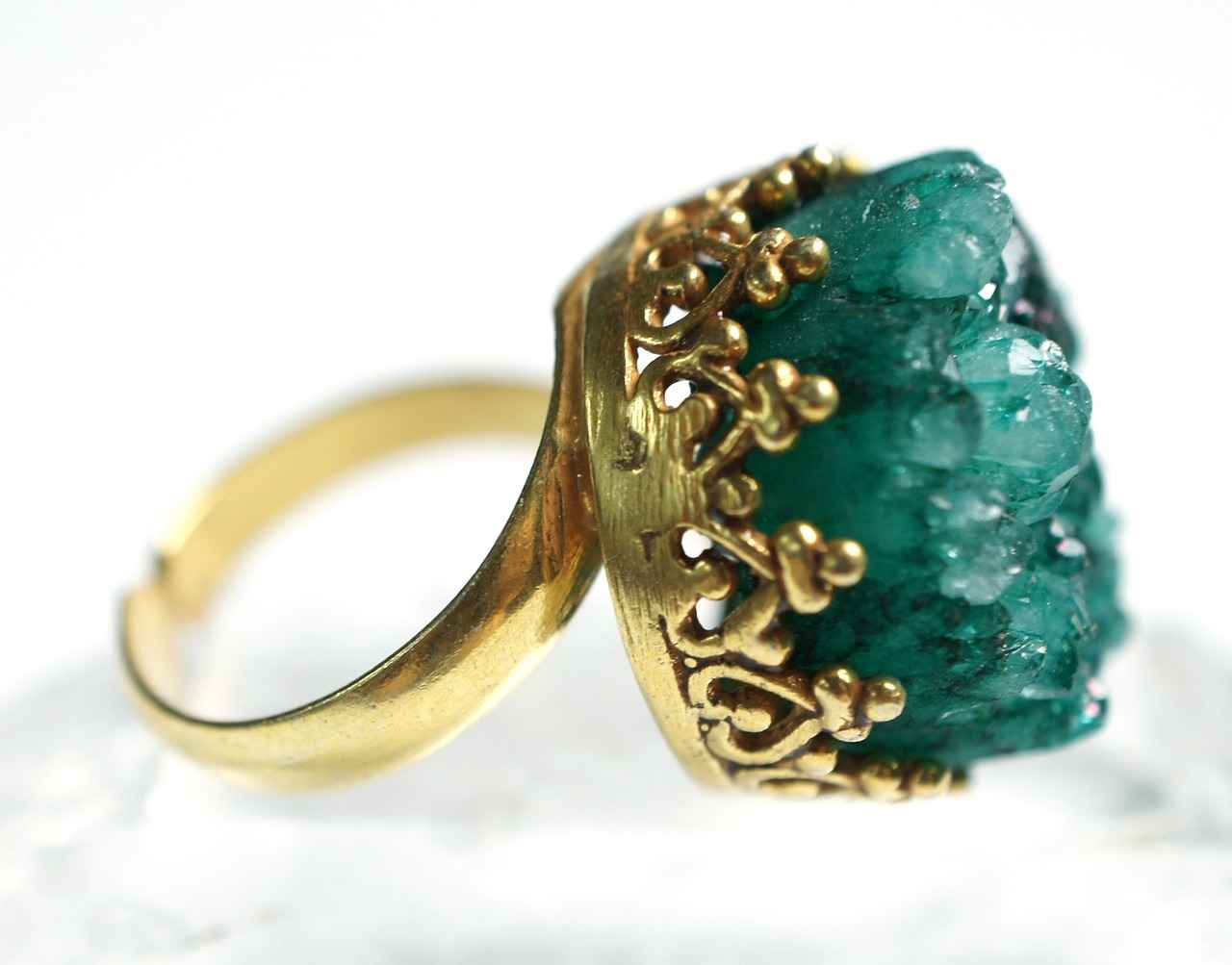
Pawn Shops: Quick Cash for Your Jewelry
Pawn shops can serve as a convenient option for individuals seeking immediate cash by exchanging old jewelry. However, it is essential to understand the intricacies of their pricing models to ensure a fair transaction. In this section, we will delve deeper into the workings of pawn shops, their valuation process, and when it is wise to consider using their services.
When you visit a pawn shop, you can expect to encounter a range of items, from electronics to jewelry. Pawn shops often have a no-frills atmosphere, but they can provide quick cash for your valuables. Here are some key aspects to keep in mind:
- Immediate Cash Offers: Pawn shops can provide cash on the spot, making them appealing for urgent financial needs.
- Negotiation Opportunities: The initial offer may not be the final price. Be prepared to negotiate to get a better deal.
- Varied Pricing Models: Each pawn shop may have different pricing strategies based on their location and customer base.
Pawn shops typically offer lower prices than retail value for jewelry. This is because they need to resell the items for a profit. Here are some factors that influence pawn shop valuations:
1. Material Composition: The value of gold, silver, and gemstones will significantly affect the offer.2. Condition: Well-maintained jewelry may fetch higher prices.3. Market Demand: Current trends in jewelry can impact how much a pawn shop is willing to pay.
Using a pawn shop can be ideal when you find yourself in a financial crunch and need cash quickly. However, it is crucial to weigh the potential loss of value against your immediate financial needs. Consider the following scenarios:
- Urgent Cash Needs: If you require cash quickly for bills or emergencies, pawn shops can be a quick solution.
- Short-Term Loans: If you are willing to retrieve your jewelry later, pawn shops can provide short-term loans.
- Items with Limited Market Value: If you own jewelry that may not sell well through other channels, a pawn shop may be your best option.
To ensure a smooth and beneficial experience when dealing with pawn shops, consider these practical tips:
- Research Beforehand: Understand the current market value of your jewelry to avoid lowball offers.
- Bring Documentation: If possible, bring appraisals or receipts to support your item’s value.
- Be Prepared to Walk Away: If the offer doesn’t meet your expectations, don’t hesitate to leave and explore other options.
In conclusion, while pawn shops can offer a quick cash solution for your jewelry, understanding their pricing models and being prepared for negotiations is vital. By following the tips outlined above, you can navigate the pawn shop landscape more effectively and make informed decisions that align with your financial needs.
Understanding Pawn Shop Valuations
When considering the sale of your old jewelry, understanding the dynamics of pawn shop valuations is essential. Pawn shops serve as a quick and accessible option for individuals seeking immediate cash. However, it is important to recognize that the prices offered by these establishments are often lower than retail values. This is primarily because pawn shops need to resell items for a profit, which necessitates a careful approach to negotiations.
Pawn shops evaluate jewelry based on several criteria, including:
- Market Demand: The current demand for specific types of jewelry can significantly impact its value. Popular styles or materials may fetch higher prices.
- Condition: The physical state of the jewelry plays a crucial role. Items that are well-maintained, free from damage, and have original packaging may be valued higher.
- Precious Metals and Stones: The intrinsic value of materials, such as gold, silver, or gemstones, is a fundamental factor in determining worth.
- Brand and Provenance: Well-known brands or pieces with a notable history can command higher prices due to their desirability among buyers.
Entering a pawn shop prepared can significantly enhance your chances of receiving a better offer. Here are some practical tips:
1. Research: - Understand the current market value of your jewelry. - Use online resources or consult with experts to get an idea of pricing. 2. Bring Documentation: - If available, provide certificates of authenticity, appraisals, or receipts to support your claim of value.3. Set a Minimum Price: - Before entering negotiations, decide on the lowest amount you are willing to accept to avoid hasty decisions.
Negotiation is a key component of the pawn shop experience. Be prepared for back-and-forth discussions regarding the price. Pawn shop owners typically start with a low offer, expecting you to counter with a higher price. This is a standard practice in the industry, and understanding this dynamic can help you navigate the process more effectively.
Pawn shops can be particularly beneficial in specific situations:
- Urgent Cash Needs: If you require immediate funds, pawn shops can provide quick cash without the lengthy process associated with selling jewelry through other channels.
- Low Commitment: Unlike selling outright, pawning allows you to reclaim your jewelry later, should you choose to do so.
- Less Emotional Attachment: If you have pieces that you are less emotionally attached to, pawning may be a more viable option.
While pawn shops offer convenience, there are some potential downsides to consider:
- Lower Offers: As mentioned, the offers tend to be significantly lower than retail or market value.
- Fees and Interest: If you opt to pawn rather than sell, be aware of interest rates and fees that may accumulate over time.
- Risk of Losing Your Jewelry: If you are unable to repay the loan, you risk losing your item permanently.
In conclusion, understanding pawn shop valuations is crucial for anyone looking to exchange their old jewelry for cash. By being informed about the factors that influence pricing, preparing adequately for negotiations, and recognizing both the advantages and disadvantages of using pawn shops, you can make more informed decisions that align with your financial needs.
When to Consider a Pawn Shop
When facing unexpected financial challenges, many individuals turn to a pawn shop as a quick solution for obtaining cash. This option can be particularly appealing due to the immediate nature of the transaction; however, it is crucial to consider the implications of using such a service. Below, we explore the circumstances under which visiting a pawn shop may be a viable choice, while also highlighting the potential drawbacks.
Before deciding to visit a pawn shop, it is essential to assess your urgent cash needs. Are you in a situation where you need money quickly to cover essential expenses, such as medical bills or car repairs? If so, a pawn shop may provide a necessary lifeline. However, it is important to weigh this against the potential loss of value on your items.
When considering a pawn shop, be aware that they typically offer lower valuations compared to retail prices. This is because pawn shops aim to resell items for profit, which means you may not receive the full value of your jewelry. Before entering a pawn shop, conduct your own research to understand the market value of your items. This knowledge will help you negotiate better terms and avoid feeling shortchanged.
Once you decide to visit a pawn shop, be prepared to negotiate. Many pawn shop owners expect some back-and-forth discussion regarding the price. Having a clear understanding of your jewelry’s worth will empower you during this process. Remember, the initial offer is often negotiable, so don’t hesitate to advocate for a fair price.
While pawn shops offer quick cash, it’s wise to consider alternative options as well. For instance, selling your jewelry outright through online marketplaces or local jewelry stores may yield better financial returns. Additionally, borrowing from friends or family, or exploring personal loan options, could be less detrimental to your assets.
Using a pawn shop can come with risks. If you are unable to repay the loan within the agreed-upon timeframe, the shop will keep your item, potentially leading to a significant loss. It is vital to have a clear plan for repayment before committing to a pawn transaction. This foresight can help you avoid losing valuable pieces that hold sentimental or financial worth.
In some situations, the need for cash is so immediate that alternatives may not be feasible. If you find yourself in a financial crisis where time is of the essence, a pawn shop can provide a quick solution. Just ensure that you are fully aware of the terms and conditions of the transaction, including interest rates and repayment timelines.
In conclusion, while pawn shops can be an appealing option for urgent cash needs, it is essential to weigh the potential loss of value against your immediate financial requirements. By understanding your options, negotiating effectively, and considering alternatives, you can make informed decisions that align with your financial goals.
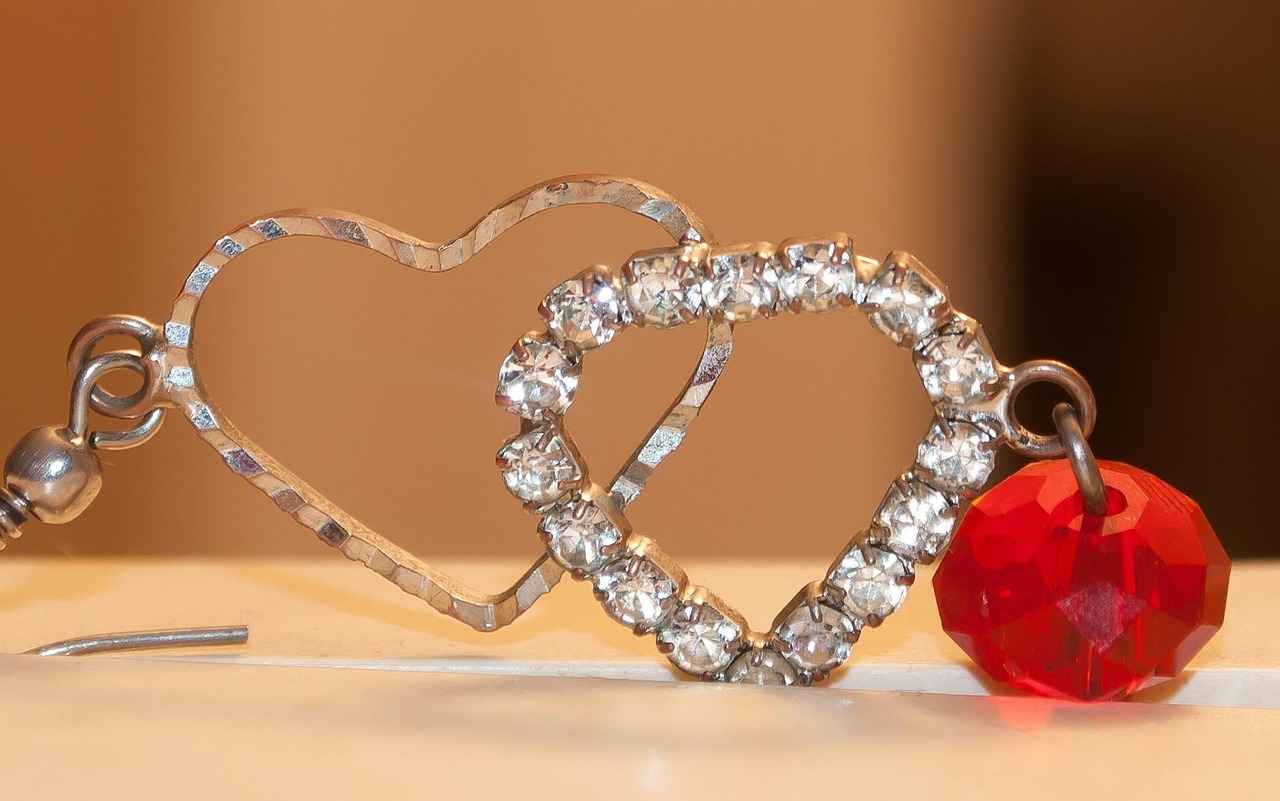
Jewelry Trade Shows: Networking and Valuation Opportunities
Jewelry trade shows are vibrant hubs of activity, showcasing the latest trends and innovations in the jewelry industry. These events not only attract buyers and sellers but also provide a unique platform for individuals looking to trade or exchange old jewelry. By attending these shows, you can immerse yourself in an engaging environment where connections are made, and valuable insights are shared.
Jewelry trade shows offer a distinctive atmosphere that fosters networking and collaboration. Unlike traditional retail environments, these shows bring together a diverse group of participants, including designers, collectors, and retailers. This diversity enhances the trading experience, allowing you to interact directly with potential buyers and sellers, which can lead to mutually beneficial deals.
Preparation is key to maximizing your experience at a jewelry trade show. Here are some essential tips:
- Research the Event: Familiarize yourself with the exhibitors and their specialties. Knowing who will be present can help you target your interactions.
- Prepare Your Jewelry: Ensure that your old jewelry is clean and well-presented. This will enhance its appeal and value during negotiations.
- Gather Documentation: Bring any appraisals or certificates of authenticity. This information can bolster your credibility and facilitate smoother transactions.
- Set Clear Goals: Define what you aim to achieve at the show—whether it’s exchanging specific pieces, networking, or gaining market insights.
One of the most significant advantages of attending a jewelry trade show is the opportunity to network. Engaging with industry professionals can lead to valuable connections that extend beyond the event. You may discover:
- Potential Buyers: Meet individuals who are interested in purchasing your old jewelry, offering fair prices based on current market trends.
- Collaborative Partnerships: Connect with designers or retailers who may be interested in collaborating on future projects.
- Market Insights: Gain knowledge about upcoming trends, pricing strategies, and consumer preferences directly from industry insiders.
Jewelry trade shows often feature expert appraisers who can provide insights into the value of your items. This can be especially beneficial for:
- Understanding Market Value: Knowing the current market value of your jewelry can help you make informed decisions about trading or selling.
- Receiving Professional Opinions: Expert appraisals can lend credibility to your items, making them more attractive to potential buyers.
- Negotiation Leverage: Armed with valuation information, you can negotiate more effectively, ensuring you receive a fair deal.
To find local jewelry trade shows, consider the following resources:
- Industry Associations: Organizations such as the Jewelers of America often list upcoming events on their websites.
- Social Media: Follow jewelry-related pages on platforms like Instagram and Facebook for announcements about trade shows.
- Community Boards: Local community centers or cultural institutions may also host or promote jewelry trade shows.
In conclusion, attending jewelry trade shows can significantly enhance your ability to trade or exchange old jewelry. By preparing adequately, networking effectively, and taking advantage of valuation opportunities, you can make the most of these dynamic events. Whether you are looking to refresh your collection or gain insights into the jewelry market, trade shows offer a wealth of opportunities.
Finding Local Jewelry Trade Shows
When it comes to enhancing your jewelry trading experience, can be a game-changer. These events not only provide a platform for showcasing your items but also open doors to valuable networking opportunities and insights into current market trends.
Attending local jewelry trade shows is essential for anyone looking to thrive in the jewelry market. These events gather a diverse group of buyers, sellers, and enthusiasts, creating an atmosphere rich in opportunities. You can learn about the latest trends, discover new trading techniques, and connect with industry professionals who can offer guidance and support.
One of the most significant advantages of attending these events is the networking potential. You can meet fellow traders, jewelers, and even potential customers face-to-face. Building relationships in person often leads to long-term collaborations, partnerships, and even friendships. Sharing experiences and tips with others in the industry can provide invaluable insights that you might not find elsewhere.
Local trade shows are also a prime venue for gaining insights into current market trends. By observing what other vendors are showcasing and what buyers are interested in, you can adapt your strategies accordingly. This knowledge can help you make informed decisions about which pieces to trade or how to price your items effectively.
- Research the Event: Before attending, gather information about the trade show, including the types of vendors and attendees you can expect.
- Display Your Jewelry Effectively: Make sure your items are well-presented. Use attractive displays and ensure your pieces are clean and polished.
- Gather Necessary Documentation: Bring any relevant paperwork, such as appraisals or certificates of authenticity, to build trust with potential buyers.
- Practice Your Pitch: Be prepared to explain the value of your jewelry and why someone should consider trading with you.
- Be Ready to Negotiate: Understand that negotiation is a part of the trade process. Be open to offers and willing to discuss prices.
To truly benefit from your time at a trade show, it’s essential to engage with others. Ask questions, participate in discussions, and be open to learning. The more you interact, the more you will gain from the experience. Take notes on what you learn and follow up with contacts after the event to solidify those connections.
In summary, local jewelry trade shows are a fantastic way to enhance your trading experience. By taking the time to prepare and actively engage with others, you can unlock a wealth of knowledge and opportunities that will serve you well in your jewelry trading journey. Don’t miss out on these valuable events that can elevate your understanding and success in the jewelry market.
Preparing for a Trade Show
Preparing for a trade show can be a transformative experience for jewelry enthusiasts and sellers alike. To ensure you make the most of this opportunity, it is essential to focus on several key aspects.
First and foremost, presentation matters. Your jewelry should be clean, polished, and attractively displayed. Consider investing in high-quality display cases or stands that showcase your pieces effectively. Use lighting to highlight the beauty of your jewelry, as well-lit items tend to draw more attention. Remember to categorize your pieces logically, making it easy for potential buyers to browse through your collection.
In addition to preparing your jewelry, it is crucial to gather all necessary documentation. This includes:
- Certificates of Authenticity: If your pieces are from well-known brands or designers, having proof of authenticity can significantly increase their value.
- Appraisal Documents: Professional appraisals can provide potential buyers with confidence in the value of your jewelry.
- Care Instructions: Providing care instructions can enhance the buyer’s experience and show that you care about the longevity of the pieces.
Negotiation is an integral part of the trade show experience. Be prepared to discuss prices and be open to offers. Here are some tips for effective negotiation:
1. Know Your Bottom Line: Understand the minimum price you are willing to accept.2. Listen Actively: Pay attention to what the buyer values in your jewelry.3. Be Flexible: Sometimes, offering a small discount can seal the deal.
Trade shows are not just about selling; they are also about building relationships. Take the time to network with other vendors and potential buyers. Exchange contact information and follow up after the event. Building a network can lead to future sales and collaborations.
Being aware of current market trends is vital for success at a trade show. Research popular styles, materials, and pricing strategies before the event. This knowledge will empower you to make informed decisions about your pricing and marketing strategies.
As the day of the trade show approaches, double-check your preparations. Ensure that you have:
- All Items Ready: Make a checklist of the jewelry pieces you plan to display.
- Marketing Materials: Bring business cards and brochures to distribute.
- Comfortable Attire: Dress professionally, yet comfortably, as you may be on your feet for long periods.
In conclusion, thorough preparation is key to maximizing your experience at a trade show. By focusing on presentation, documentation, negotiation, networking, and market awareness, you can create a successful and rewarding experience that enhances your jewelry business.
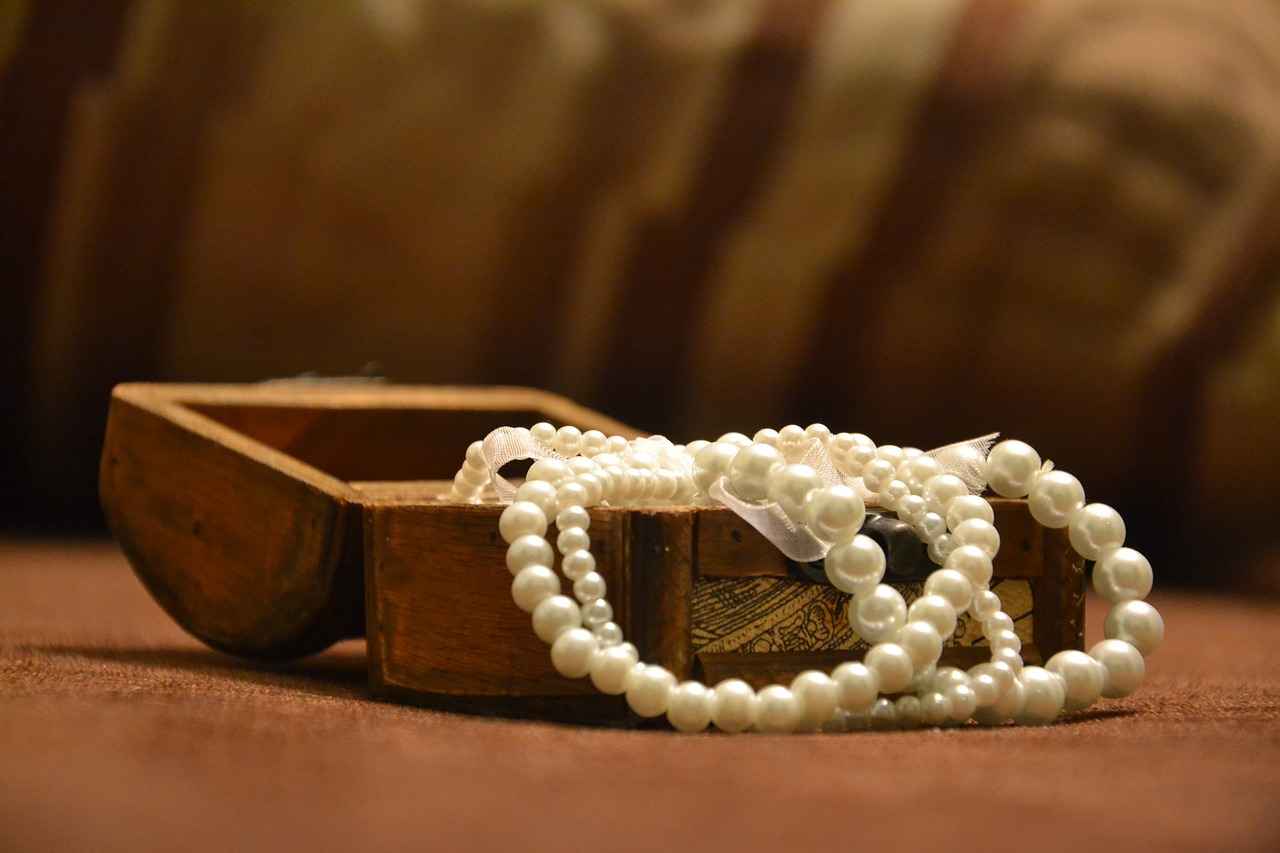
Charitable Donations: A Meaningful Exchange
When considering ways to part with old jewelry, donating to charities stands out as a profoundly rewarding option. This approach not only helps those in need but also provides personal satisfaction and potential tax benefits. In this article, we will explore the various aspects of donating jewelry, including how to choose the right charity and the tax implications involved.
Donating your old jewelry can bring a sense of fulfillment as you contribute to a cause that resonates with you. Whether it’s supporting local shelters, healthcare initiatives, or educational programs, your contribution can make a significant difference. Furthermore, many charities accept jewelry donations to fund their operations or support specific projects, thus amplifying the impact of your gift.
Selecting the right charity is crucial to ensuring that your donation has the desired impact. Here are some tips:
- Research Charities: Look for organizations that align with your values and mission. Websites like Charity Navigator can provide insights into their financial health and transparency.
- Local vs. National: Decide whether you prefer to support a local charity, which may have a direct impact in your community, or a national organization that addresses broader issues.
- Understand Their Needs: Some charities may specifically request jewelry donations, while others might have different requirements. Reach out to inquire about their needs.
One of the significant advantages of donating jewelry is the potential tax benefits. Here’s what you need to know:
- Tax Deductions: If the charity is a qualified 501(c)(3) organization, you may be eligible for a tax deduction based on the fair market value of the jewelry at the time of donation.
- Documentation: To claim your deduction, maintain proper documentation, including a receipt from the charity and a description of the items donated. For items valued over $500, consider obtaining a professional appraisal.
- Consult a Tax Professional: Tax laws can be complex, so consulting with a tax professional can help you understand how to maximize your deductions.
Before donating, ensure your jewelry is in good condition. Clean the pieces gently and consider including any original packaging or certificates of authenticity, as these can enhance the value of your donation.
Once donated, charities typically assess the jewelry’s value and decide how to utilize it. Some may sell the items at fundraising events, while others might use them directly to support individuals in need. This process ensures that your donation continues to give long after it leaves your hands.
In summary, donating old jewelry is a meaningful way to declutter while making a positive impact on society. By choosing the right charity and understanding the associated tax benefits, you can ensure that your contribution is both altruistic and financially wise. Embrace the opportunity to give back and experience the joy of helping others through your generosity.
Choosing the Right Charity for Your Jewelry
When it comes to donating old jewelry, the choice of charity can significantly affect the impact of your contribution. Selecting a charity that aligns with your values ensures that your donation not only makes a meaningful difference but also resonates with your personal beliefs. This thoughtful approach allows you to declutter your collection while contributing to a cause you care about.
Choosing the right charity is crucial for several reasons:
- Alignment with Values: Donating to a charity that shares your values enhances your sense of purpose.
- Impact on Community: Understanding how the charity uses donations can ensure your jewelry helps those in need effectively.
- Transparency: A reputable charity will provide clear information about how donations are utilized.
Before making a donation, it’s essential to conduct thorough research. Here are some key factors to consider:
- Mission Statement: Review the charity’s mission to ensure it aligns with your beliefs.
- Financial Health: Check their financial reports to understand how much of their funding goes directly to programs versus administrative costs.
- Reputation: Look for reviews and ratings from trusted sources to gauge the charity’s credibility.
Various types of charities accept jewelry donations. Here are some popular categories:
- Women’s Shelters: Many shelters accept jewelry to support their programs for women in need.
- Health Organizations: Charities focused on health issues often use jewelry donations for fundraising events.
- Environmental Causes: Some organizations focus on sustainability and may accept jewelry made from eco-friendly materials.
To maximize the impact of your donation, consider the following:
- Understand the Process: Ensure you know how your jewelry will be sold or used by the charity.
- Get a Receipt: Request a receipt for tax purposes, detailing the value of your donation.
- Share Your Story: If possible, share why you chose the charity, which can inspire others to donate.
Donating jewelry can also provide potential tax benefits. Here’s what you should know:
- Tax Deductions: You may be eligible for a tax deduction based on the fair market value of the donated items.
- Documentation: Maintain records of your donation, including photographs and appraisals if necessary.
- Consult a Tax Professional: For maximum benefits, consider consulting a tax advisor to understand the implications of your donation.
In conclusion, choosing the right charity for your jewelry donation is a thoughtful process that can enhance the impact of your contribution. By aligning your donation with your values and conducting thorough research, you can ensure that your generosity truly makes a difference in the lives of others.
Tax Benefits of Donating Jewelry
Donating jewelry can be a meaningful act that not only benefits those in need but also provides financial advantages for the donor. Understanding the tax implications of donating jewelry is essential for maximizing these benefits. This article delves into the various aspects of tax deductions related to jewelry donations, allowing you to make informed decisions.
When you donate jewelry, you may be eligible for a tax deduction based on the fair market value of the items donated. This means that the value of your donation can potentially reduce your taxable income, leading to significant savings when you file your taxes.
Determining the fair market value of your jewelry is crucial for accurately reporting your donation. This value is typically defined as the price at which the jewelry would sell on the open market. To establish this value:
- Get a Professional Appraisal: Hiring a certified appraiser can provide an accurate valuation of your jewelry.
- Research Comparable Sales: Look for similar items sold recently to gauge the market value.
- Document Everything: Keep records of appraisals, photographs, and any relevant sales information.
Not all charities are created equal when it comes to tax deductions. To qualify for a deduction, your donation must be made to a qualified charitable organization recognized by the IRS. These typically include:
- 501(c)(3) organizations
- Religious institutions
- Educational institutions
Proper documentation is vital for claiming your tax deduction. Ensure you have:
- A receipt from the charity: This should include the date of the donation and a description of the items donated.
- Appraisal documentation: If your donation exceeds $5,000, an independent appraisal is required.
- Form 8283: This form must be filled out if your non-cash donations exceed $500.
Yes, there are limitations to keep in mind. The IRS imposes certain limits on charitable deductions based on your adjusted gross income (AGI). Typically, you can deduct:
- Up to 30% of your AGI for donations of appreciated property, like jewelry.
- Up to 60% of your AGI for cash donations.
It is important to consult a tax professional to understand these limitations and how they apply to your specific situation.
To make the most of your jewelry donations:
- Choose High-Value Items: Donating more valuable pieces can yield larger deductions.
- Bundle Donations: Consider donating multiple pieces at once to reach deduction thresholds.
- Consult a Tax Advisor: A professional can provide tailored advice to optimize your tax strategy.
In conclusion, understanding the tax implications of donating jewelry not only enhances your charitable contributions but also provides substantial financial benefits. By following the guidelines outlined above, you can ensure that your donations are both meaningful and financially advantageous.

Conclusion: Making Informed Decisions
When it comes to managing your old jewelry, making informed decisions is crucial. The choices you make can significantly impact your financial situation and emotional satisfaction. Whether you decide to trade, exchange, or donate your jewelry, understanding the implications of each option will empower you to navigate the process effectively.
Why is it Important to Be Informed? Being well-informed allows you to weigh the pros and cons of each option. For instance, trading your jewelry might provide you with a new piece that you cherish, while selling it could offer immediate cash. On the other hand, donating can bring a sense of fulfillment and social responsibility. Each choice has its unique set of advantages, and understanding these can lead to better outcomes.
What Should You Consider Before Making a Decision? Before you proceed, consider the following factors:
- Value Assessment: Get your jewelry appraised to understand its market value. This knowledge will aid in negotiations and ensure you receive fair compensation.
- Emotional Attachment: Reflect on the sentimental value of your pieces. Sometimes, keeping a piece for its memories might outweigh financial benefits.
- Market Trends: Research current market trends in jewelry to determine the best time to trade or sell. Timing can significantly affect the value of your items.
- Trustworthy Platforms: Whether you choose a local jeweler, an online marketplace, or a pawn shop, ensure that you are dealing with reputable sources. Look for reviews and ratings to verify their credibility.
How Can You Enhance Your Trading Experience? Preparation is key. Organize your jewelry neatly, gather any necessary documentation, and be ready to present your items attractively. If you’re attending trade shows, practice your negotiation skills to ensure you can advocate for the value of your jewelry effectively.
What Are the Benefits of Charitable Donations? Donating your jewelry not only helps those in need but can also provide you with potential tax benefits. Choose a charity that resonates with you to ensure that your donation has a meaningful impact. Additionally, consult with a tax professional to understand the financial implications of your donation.
In conclusion, the journey of trading, exchanging, or donating your old jewelry can be rewarding when approached with the right knowledge and preparation. By understanding your options and considering your personal circumstances, you can make decisions that align with your financial goals and emotional well-being. Always remember that being informed is the key to achieving satisfaction with your choices.
Frequently Asked Questions
- What are the best places to trade or exchange old jewelry?
The best places include local jewelry stores, online marketplaces, pawn shops, and jewelry trade shows. Each option has its own benefits, such as personalized service from local jewelers or convenience from online platforms.
- How do I choose a reputable local jeweler?
To choose a reputable local jeweler, research their credentials, read customer reviews, and visit their store to assess their professionalism. A trustworthy jeweler will provide transparent appraisals and competitive offers.
- What should I know before selling jewelry online?
Before selling jewelry online, ensure you use secure payment methods, verify the authenticity of the platform, and provide accurate descriptions and high-quality images of your items. This helps build trust and increases the chances of a successful sale.
- Are pawn shops a good option for exchanging jewelry?
Pawn shops can be a quick solution for immediate cash, but they typically offer lower prices than retail value. It’s essential to understand their pricing models and be prepared for negotiation.
- What are the benefits of donating old jewelry?
Donating old jewelry can provide personal satisfaction and potential tax benefits. It allows you to declutter your collection while making a meaningful impact on a charity that aligns with your values.

